HT Talks To ... Meat Loaf
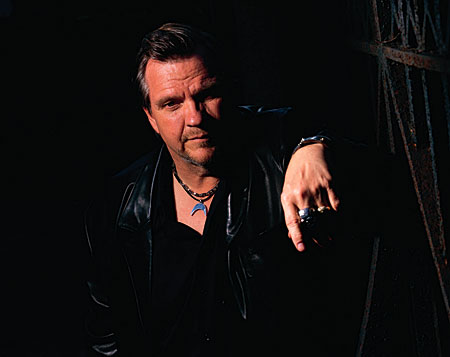
May I call you Meat loaf, or. . .?
Meat. Everybody does, since I was 9 years old.
At this point in your career, do you pursue acting parts, or do directors and producers pursue you?
No, it goes back and forth. On this, they contacted me. People do call all the time about stuff, but I would say 95 percent of it I turn down.
What was it that drew you to "Pelts"?
Well, it was just a completely different character than anything I'd done. I had really never played a character who was that angry and that bitter with the world.
Is he a sleazy guy, or is he just trapped in a sleazy life?
No, he's trapped in a sleazy life. I never played him as a sleazy guy. I just played him as a bitter, angry man who thought the world owed him something. He blamed everyone else.
I watched the making-of on the disc, and I got the sense that you're a little squeamish about the horror genre.
The slasher ones I'm not a real fan of. And I know Dario is, and he makes them. But if Dario called me up and said, "Look, I want to make this movie," and it was that kind of movie, I would go make it because it was with Dario, and that's how well I got along with him and respected him. We were on the same page. He got a really great performance out of me. And it showed on the screen. That's all you can ask for as an actor.
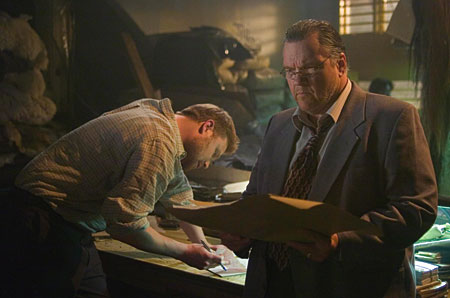
When people recognize you on the street or wherever, is it more for your work as a musician or as an actor?
For forever it was Rocky Horror. Then, in recent years, it was Bob, in Fight Club, and it was a younger demographic. In L.A., to be truthful, more people say to me, "Aw, you were in that movie!" [laughs] In L.A., it's really about the acting.
Allow me to congratulate you on the success of Bat Out of Hell III.
Oh, thank you very much.
And did I read something like 35 million copies of Bat Out of Hell have sold?
Yeah!
But the music business is very different now, isn't it?
I'm very behind, but I just got an iPod. And I love the Rolling Stones. But, you know, I can go on iTunes, and I can make my own Rolling Stones album of songs that I want to hear. Five years from now, the music business is going to be about songs. It's no longer going to be about albums.
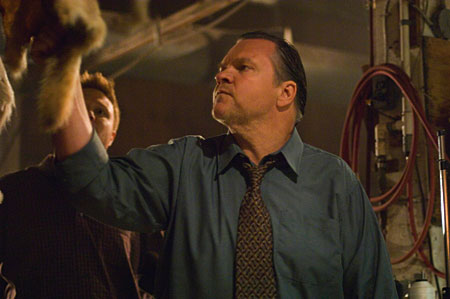
I actually just downloaded a couple of Bat Out of Hell III tracks—legally, of course!
I'm not going to illegally download anybody's music. People were saying we had a million to a million-five illegal downloads on Bat III already.
Oh, man, I'm so sorry.
Yeah. I mean, my record company in America just went under. Just since we released Bat Out of Hell III. I'm a little upset over that! Because we were getting ready to launch the second single off of the album in the rest of the world, and I can't do anything with it here.
What's your reaction when a new technology like SACD or DVD-Audio comes along?
Well, whenever we do videos or anything like that, we always mix them to those.
That's great!
I don't know what the new technology is, to tell you the truth. [laughs] I don't keep up with it. But I know the last DVD we did with the Melbourne Symphony Orchestra, we mixed to a couple of different things. We're getting ready to shoot another DVD now, and we will do it again.
You're in two of my favorite movies, and actually two of the best DVDs out there: The Rocky Horror Picture Show and Fight Club. You were originally reluctant to do Rocky Horror?
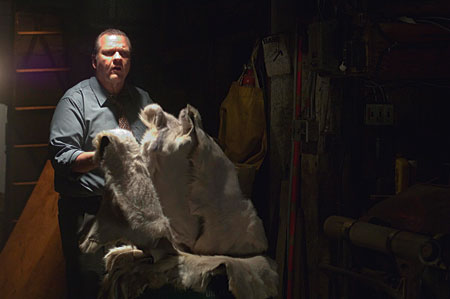
Not the Picture Show, the original play. And I wasn't. Back then, I mean, this was 1973, I guess. I was so young, and I was doing theater. People hired me, and they'd go, [matter-of-factly] "OK, we want you to do our play." And I'd say, "OK!" I didn't ask for a script. Now I won't do anything without seeing a script or hearing the music or something. So, I got out to L.A., and we were learning the music. It was just "Over at the Frankenstein Place," "Eddie's Teddy," and all this stuff. Listen, I was a good ol' boy from Texas at the time, and Tim Curry made his entrance into the rehearsals wearing fishnet stockings and high heels. He started singing, "I'm just a sweet transvestite," and I just got up and walked out. Finally, that night, after they talked me down, they gave me a script and said, "This is a comedy!" I was still a little upset, and then eventually I really got into it because it was hysterical. But the initial shock of it—I just walked out and said, "I quit."
You know that you specifically are one of the audience shout-outs, right?
Yeah, "Not Meat Loaf again tonight." I was at the movie once when they did that.
Speaking of comedy, can you comment at all about that unique tone of Fight Club?
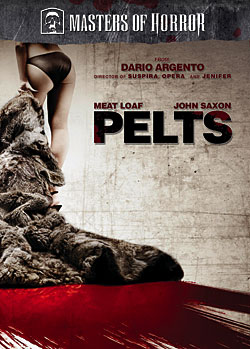 I'm talking about Dario Argento, and now we can go to [Fight Club director] David Fincher, who is probably my all-time favorite director who I've worked with. Fincher knew how to work with his actors, as well, and I really liked that. The advantage, or disadvantage, I had with Fincher—you can take it either way, because some actors would find it a disadvantage, but I found it eventually an advantage—is that we would do 40 takes. For every scene. I learned to love that.
I'm talking about Dario Argento, and now we can go to [Fight Club director] David Fincher, who is probably my all-time favorite director who I've worked with. Fincher knew how to work with his actors, as well, and I really liked that. The advantage, or disadvantage, I had with Fincher—you can take it either way, because some actors would find it a disadvantage, but I found it eventually an advantage—is that we would do 40 takes. For every scene. I learned to love that.
You know that would drive most normal people insane, to do the same thing 40 times in a row.
Not me. I got off on it. I thrived on it. Because it just became so inventive. And you had to become creative and inventive. It really opened up my improv chops beyond my wildest imagination. So, I learned that from Fincher because, you know, when you start, and you're doing seven takes, and you're kind of doing the same thing, you're going, "I've got to do something different." David Fincher made me more creative as an actor and opened me up as an actor more than anybody else.
Going back to when you first got your start, was the acting or the singing more appealing to you?
The acting was. It still is. I mean, it's still present in the live stage shows that I do. They're theatrical in the sense of how people should be theatrical, not in the sense of, you know, guillotines and props. It's about the emotion of the people. And that's what acting is to me.
- Log in or register to post comments




































































